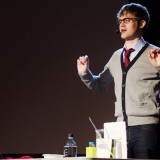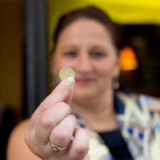A story about how the fascination of the world can shape the learning desire of a child and how new technologies can enhance learning to creativity. From the rickshaw to the robots and up to the drone, a fascinating learning journey.
THE TINKERING (OF A) GENERATION
Nooruddin believes that learning happens everywhere nowadays. And, judging by the fact that I first met him during the THINK Science Fair in Dubai at the playing and learning space set up by CR8 filled with children and teenagers assembling and operating LEGO Mindstorms and RERO robots (REconfigurable RObot), he couldn’t be more right…
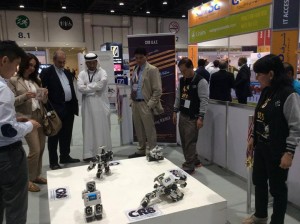

Nooruddin Ahmed is currently implementing in UAE the learning programs of Cre8tiv Robotix, an organization established in 2003 in Malaysia (now with 29 centers all over the world) promoting technology learning through robotics.
He summarizes his vision of learning:
It is definitely shifting out of the conventional classrooms. However, there is a need to have some structure as well to be able to cope with the information overload.
In this context, his opinion is that the key to preventing this information overload on the youth is to enable PULL rather than PUSH mechanisms in the education system. This means that, rather than pushing a lot of information to students, they should be encouraged to consume applicable information necessary for achieving their objectives.
And their objectives are also shifting more and more towards real world applications enabled and enhanced by technology but when starting to learn about new technologies, in or out of their schools, they are confronted with the issue of a lack of practice, the possibility to experiment, test and tinker with these new technologies.

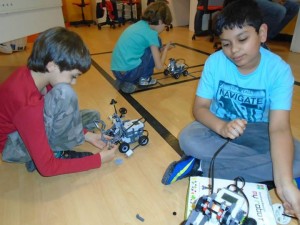
The maker personality of Nooruddin rises to the surface:
All the new technologies such as drones, 3D printers, etc. have the potential to be used both for education as well as entertainment. While edutainment may be a great way to generate and sustain interest, the government and industries need to create eco-systems around this space to be able to capitalise on the use of these technologies to deliver tangible real-world value. We have started seeing a part of this happening already by governments encouraging competitions to produce real world solutions.
Even though approaches such as the edutainment or the maker movement are generating more applicable projects, the gap between education and learning is still substantial, Nooruddin thinks:
That is partially because education seems to be primarily examination driven. There is a huge cultural shift needed. I strongly believe that by encouraging a more open approach towards evaluating students this mind set will start to change.
DON’T BE A ROBOT. BUILD ONE.
He goes one step further – out of the educational system’s reach – and puts forward an idea to revolutionize the workforce understanding altogether:
A good starting point in my opinion could be that corporate organizations scrap the education criteria for filtering candidates and base it more on the ability to execute.
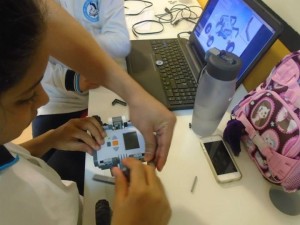
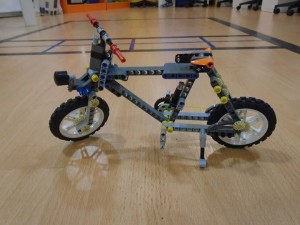
This view stems deep from his experience with the numerous programs of children in the UAE learning robotics but also from his own life learning experiences:
In my opinion there is a need to establish a blended form or learning not just online or in the classroom but also a lot of real world experiences.
These real world experiences are the ones who make humans get out of their comfort zone, learn, retain what they’ve learnt and later on, successfully apply what they’ve retained. Nooruddin adds to this the layer of mentorship:
While at ADNOC, I had a person by the name of Alija Alikadic, a consultant who worked with me. He is the most important mentor in my working life because he encouraged me to think outside my comfort zone.
THE SCHOOL ON WHEELS
He goes further back to acknowledge his learning path:
One of the defining learning experiences I had in my life was discovering the world with my grandmother from in the first 6 years of my life before starting any kind of formal school. She used to take me in a rickshaw all around the city almost daily and we visited several people and places including parks, zoos, museums, cafes, markets, etc.
Assimilating knowledge was also essential and fascination played an important role here:
Reading whatever came my way and trying to make sense of the world was another relevant learning experience. This included fairy tales, stories, newspapers, comics and almost anything that was interesting. Unfortunately, the same fascination did not carry on with school text books which I felt were dull and dreary.
Last but not least, the success of working with kids during the CR8 programs and summer camps was built by working with his own children:
Their unassuming ways and innocent queries taught me a great deal of stripping pre-conceived notions.
He sees the connection between the learning moments in his life and he explains the impact these had on his current perspective on education:
The connection to me was obvious as I was always looking for something that could be fascinating, engaging and fun-filled for children. I wanted to bring the spark back into learning not confined by the four walls of a classroom – basically just like in my early years with my grandmother.

